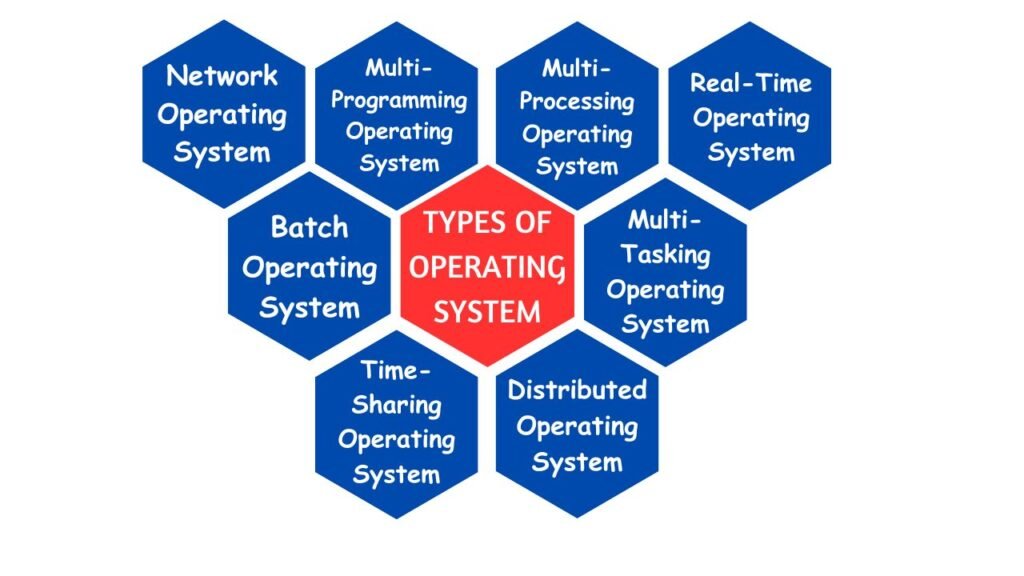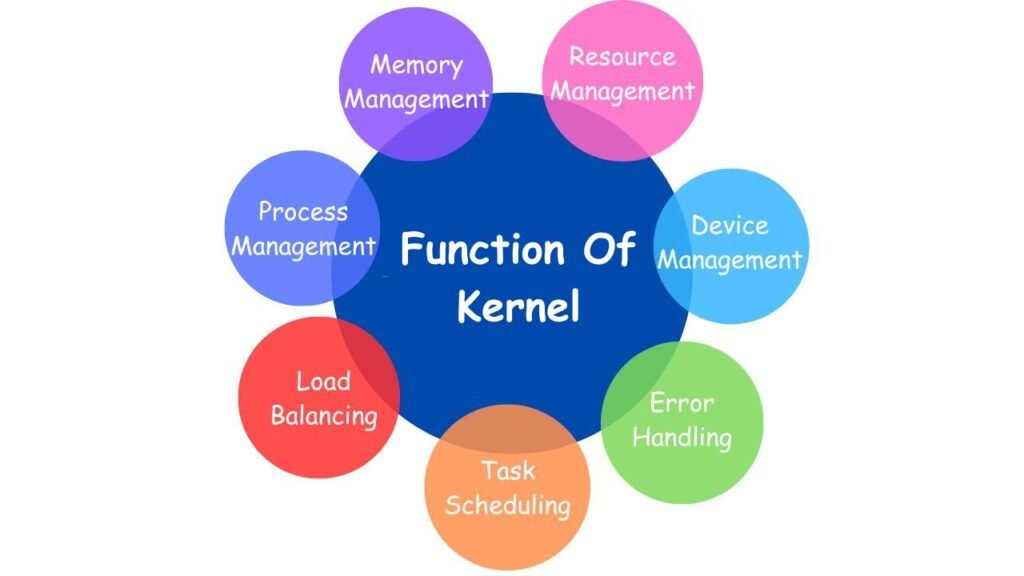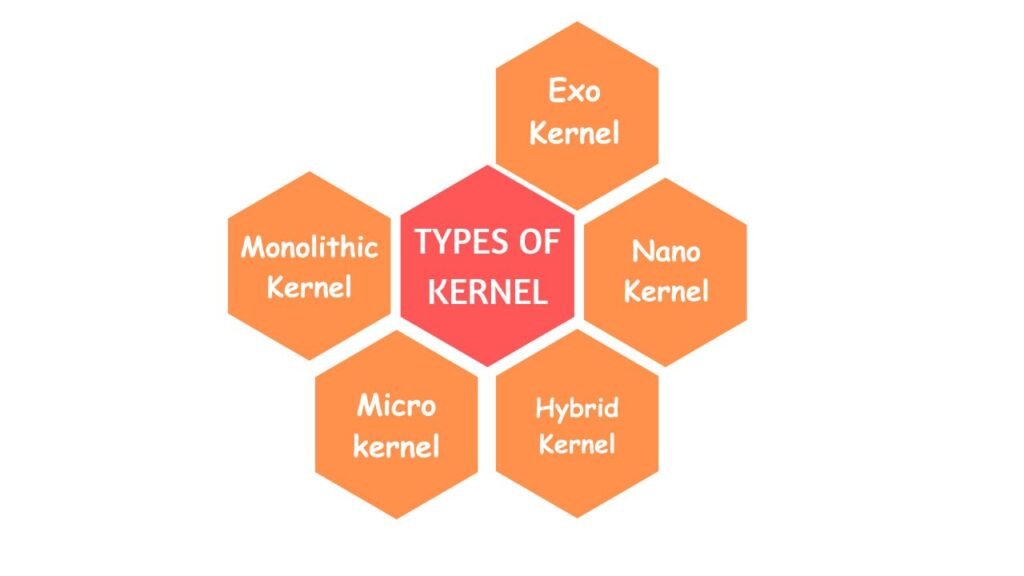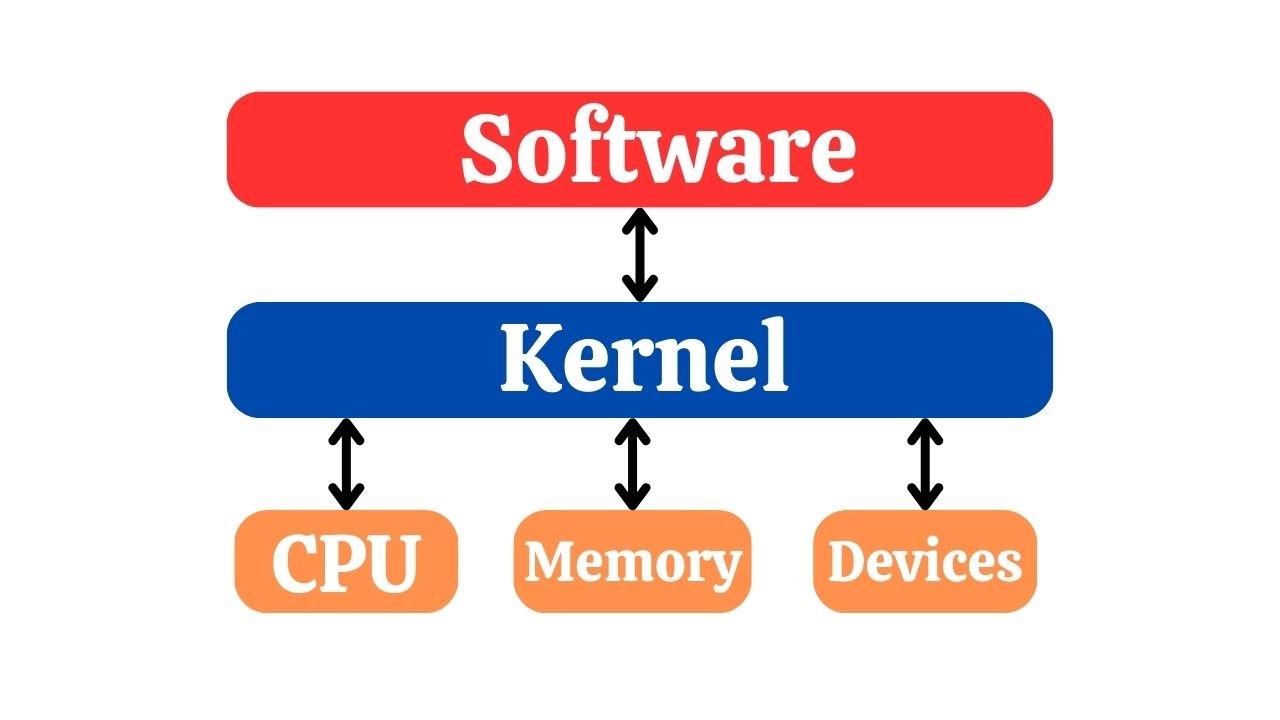Operating System and Kernel, These two are types of system software that play an important role in the functioning of computer systems. If I talk about the operating system then It plays an intermediary role between the hardware and the software. On the other hand, the kernel plays a role in helping the computer software to run and it manages the computer’s resources.
Well, this is just a small introduction about this now let’s see What is an Operating System and kernel in detail…

Table of Contents
What is an Operating System?
Operating is a system software that is an important component of the computer system. It provides an interface between the user and hardware to perform any operation whatever the user wants to do like now we have Windows OS, Mac OS, Android OS, etc. so in these OS we can use any application/software, browse, game, watching etc. like thing we can do. It allows users to interact with the computer system. It is known as an “Operating System” or commonly known as “OS”
Due to the operating system, we can interact with the computer but what if there is no operating system is it possible to interact? Well, the answer is yes but only for computer professionals, only they can use it otherwise a normal user can’t. The computer system is totally nothing for us if no OS’s why it is very important for computer systems. And, now performing an OS requires some resources from the system: CPU, Memory, Storage, and many other things.
There are some types of OS are :
Types of OS
- Batch Operating System
- Time-Sharing Operating System
- Distributed Operating System
- Multi-Tasking Operating System
- Real-Time Operating System
- Network Operating System
- Multi-Programming Operating System
- Multi-Processing Operating System

Function of Operating system
- Process Management
- Memory Management
- Resource Management
- Device Management
- Error Handling
- Task Scheduling
- Load Balancing

Process Management
In an operating system, process management is responsible for managing, creating, scheduling, and controlling individual processes. when a user initiates the application/software that time OS creates a new process and assigns it a unique process identifier (PID) along with necessary resources like memory and CPU. This helps the system to manage the processes.
Memory Management
Memory management is an important function of the operating system that is responsible for managing the virtual and physical resources of memory while the user performing any task in their system. It helps the multiple running processes in the system.
Resource Management
Resources management is the process of managing computer resources in an effective manner. When a user runs a task in their system the operating system requires to utilization of the system resources like CPU, Input & Output Device, Network interfaces, etc.
Device management
In an operating system, Device management is responsible for managing and controlling the system devices such as monitors, Mouse, Printer, Hard Disk, etc. The primary work of device management is to ensure that these devices are connected to the computer and work properly. It requires drivers to connect the devices to the system.
Error Handling
Error handling is basically a process to check the error while performing any task in the system. If the operating system detects any error then it provides the error message to the user.
Task Scheduling
Task scheduling in an operating system is responsible for managing and allocating CPU resources to various processes or tasks. In this process, the CPU schedules the task which process should run next.
Load Balancing
Load Balancing is the process of distributing the computer task in multiple resources and then balancing all the things.
What is Kernel?
The kernel is also a part of system software that plays an important role in the operating system. It is a core component/part of the operating system that helps the OS to convert the user command into the machine language(which is a binary language). It plays an intermediary role in the between the software and hardware.
Suppose a user wants to open any software on his/her computer then the kernel converts the user request into machine language and sends it via system call to the computer system. During sending the request it uses system resources like CPU, Memory, etc.
In short, The kernel is an important component of software that must be present for an operating system to be able to carry out its functions properly.
In kernel, there are also some types:
Types of Kernel
- Monolithic Kernel.
- Microkernel.
- Hybrid Kernel.
- Exo Kernel
- Nano Kernel

Function of Kernel
- Memory Management
- System Call
- Security Access Control
- Error Handling
- File System Management
- Process Management
- Networking
Memory Management
Memory Management in a kernel is responsible for protecting the computer’s memory resources by managing physical and virtual memory.
System Call
In a kernel, a System call provides the interface between the user and the operating system so that if the software/program needs something like getting access from anything then it can request directly to the kernel.
Security Access Control
Security Access Control is an important function of the kernel where it is responsible for managing the system privileges security by preventing unauthorized or malicious activities.
Error Handling
Error handling is the process of handling and detecting exceptional errors that can disrupt system operation. It comprises systems for error detection and reporting, and error-handling strategies such as soft degradation, system recovery, and, in extreme circumstances, system shutdown.
File System Management
In a Kernel, File System management refers to the part of the operating system that is responsible for managing the file system in an organized manner.
Process Management
In the kernel, process management involves developing, scheduling, and terminating the processes, which are the fundamental units of the operating system and it manages resources and determines which processes execute on the CPU.
Networking
Networking in the kernel is responsible for protecting and managing the network-related operations where the computer is connected to the external network.
Difference between Operating System and kernel
| Operating System | kernel |
|---|---|
| An operating system is a system software that is responsible for providing the interface between the user and the hardware. | kernel is also a system software that is responsible for providing essential services to other software components. It is a core component of the operating system |
| The computer system is nothing without the Operating system. | The Operating system is nothing without the kernel. |
| When an operating system boots up, this is the first program | At the time of booting up this is the first software to load |
| There are different kinds of operating systems, such as Multiprocessor OS, Single and Multiuser OS, Realtime OS, and Distributed OS. | Different types of kernel are: Monolithic Kernel, Microkernel, Hybrid Kernel, Exo Kernel, and Nano Kernel |
| Users can easily interact with the OS | users typically do not interact directly with the kernel. |
| Examples of OS include Windows, macOS, Linux distributions, and Android. | Examples of Kernel include the Linux kernel, the Windows NT kernel, and the XNU kernel (used in macOS). |
